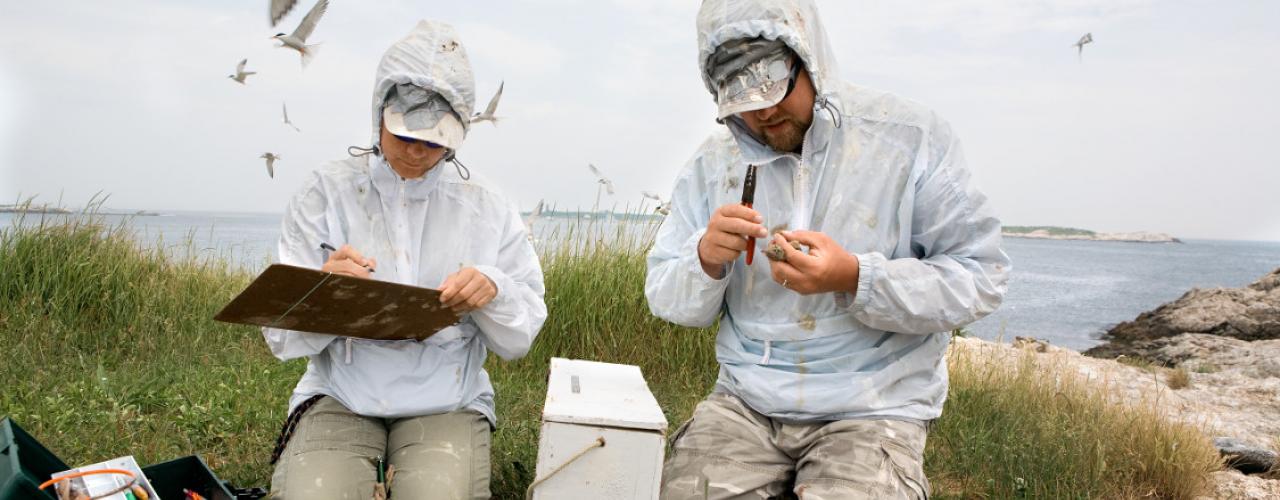Field Research Safety
Field research involves conducting work outside of traditional campus facilities—whether in natural, rural, or urban settings, within the U.S. or abroad—where participants may encounter variable or uncontrolled conditions. Use the resources below to assess hazards and plan safe, compliant field activities.
Planning
Plan early for field work—whether on Cornell properties or internationally—and create a field safety plan that assesses potential hazards. Your plan should include:
- Names, roles, and mobile contact information for all participants and emergency contacts.
- A concise description of field procedures and tasks, including higher-risk steps.
- Travel logistics and site access (routes, vehicles, boats/aircraft, permits, local conditions).
- Local resources (food, restrooms, lodging, medical facilities) and their locations/hours.
- Communication methods and coverage (cell/satellite, check-in schedule, dead-zone contingencies).
- Environmental considerations (weather, terrain, heat/cold stress, wildlife, water, elevation).
- Chemicals/biologicals/equipment to be taken to the field and how they will be secured, transported, and returned.
- Waste/surplus plan: materials brought to the field must be returned and evaluated; dispose of waste per Cornell procedures or local procedures, whichever is the most restrictive.
- To begin a research proposal visit Research Services.
- To stay organized in the field, use the Field Safety Plan.
- For regulations on traveling with small quantities of chemicals, see DOT Materials of Trade.
Training
Field-specific training can help you prevent and manage incidents involving environmental hazards, pesticides, animals, weather, and other risks.
- First Aid courses are available through Workday Learning or CALS OEH.
- Anyone conducting agricultural field research who may contact plants treated with pesticides within the last thirty (30) days must take Worker Protection training.
- Additional offerings are posted on the CALS OEH training page.
University emergency contacts
Your emergency list should include field team members, campus contacts, local emergency services, and relevant site contacts.
- For guidance on specific emergencies, visit Cornell Emergency Management.
Incident reporting
Incidents and near misses—on or off campus—must be reported through Cority as soon as practicable.
Travel
Whether domestic or international, use Cornell resources to plan your trip and confirm required permissions before departure. Note any current travel restrictions and import/export limitations, and document the mode(s) of travel (air, vehicle, boat) in your plan.
International SOS provides 24/7 medical, mental health, and security support and evacuation services to eligible Cornell travelers abroad. For remote, High Risk, or Extreme Risk locations, request a pre-travel briefing by calling +1 215 942 8478 or emailing Philadelphia@internationalsos.com for non-urgent requests (typical email response within ~72 hours). Also contact the Office of Risk Management and Insurance to confirm applicable insurance coverage for your trip.
- For domestic travel guidance, see the Office of Risk Management and Insurance.
- For international travel policies and requirements, visit Cornell Global Travel.
- For restricted destinations and rules on hand-carrying or shipping items abroad, consult Export Controls.
- If you are abroad and need assistance with an emergency or urgent concern, visit Cornell Emergencies Abroad
More Information
- For information on safety practices for specific job tasks, visit Cornell Occupational Safety
- For information on working with animals in the field, visit CARE occupational health and safety
- New York Center for Agricultural Medicine and Health NYCAMH
- College of Agricultural and Life Sciences CALS Occupational and Environmental Health
- For more classes involving outdoor education, visit Cornell outdoor education
- Researchers can purchase safety vests to stand out
- The Redcross has tips for what to include in a first aid kit
- For information about severe natural disasters and severe weather visit the CDC


